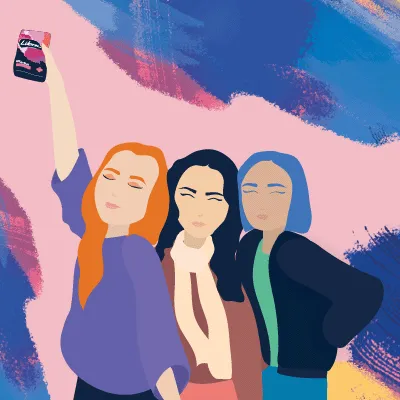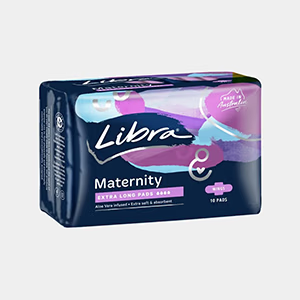Jun 20, 2025
Breaking the Silence: Talking Openly About Periods in Relationships
Periods are a natural part of life yet discussing them openly - especially in relationships - can feel awkward. Whether you're navigating a romantic relationship, a friendship, or even family dynamics, tackling the topic of periods with confidence can create stronger, more empathetic connections.
Let’s break the silence and explore how to make menstrual talk a natural part of conversation in relationships.
Why Is Period Talk Important in Relationships?
Talking about menstrual cycles isn’t just about logistics or avoiding awkward moments; it’s about creating an environment of trust and support. Here’s why it matters:
- Destigmatising a Normal Process: Periods have long been surrounded by taboos, but openly discussing them helps dismantle outdated stereotypes.
- Fostering Empathy: Whether someone experiences periods or not, understanding their impact - physically, emotionally, and socially - can deepen compassion and care.
- Better Problem-Solving: From supporting a partner during tough symptoms to planning around a cycle, open conversations make life easier for everyone involved.
How to Start the Conversation
If you’re wondering how to talk in a way that feels natural, the key is to create a safe and open space for discussion.
-
Bring It Up Casually: You don’t need a dramatic lead-in to talk about periods. Casual moments, like watching a show that mentions menstruation or sharing a funny TikTok, can serve as icebreakers. For example, “This meme gets how I feel on the first day of my cycle!” can open the door for a light-hearted discussion.
-
Be Direct When Needed: Sometimes, being straightforward is the best approach. If your partner or friend needs to understand how your cycle affects you, explain it in a clear, simple way. For instance, “Hey, just so you know, my energy might be a little low this week because of my cycle.”
-
Invite Questions: Encourage curiosity by letting the other person know it’s okay to ask questions. It helps normalise the topic and builds understanding.
Addressing Common Concerns
Bringing up menstrual talk might feel intimidating at first, especially if you’re worried about how the other person will react. Here’s how to handle common scenarios:
- They Seem Uncomfortable: If someone reacts awkwardly, don’t take it personally. They may not be used to the topic. You can say, “I get that this might feel new to talk about, but it’s just a normal part of life.”
- They Don’t Understand Periods Well: Use it as an opportunity to share basic facts about menstruation. For example, explain how cycles work or what symptoms like cramps or mood swings feel like.
- They Brush It Off: Some people might downplay the topic. Politely reinforce why it matters to you: “I know it’s not a big deal to you, but it really impacts my daily life, so I’d appreciate your understanding.”
Tips for Supporting Each Other
Once you’ve opened the door to menstrual talk, it’s important to build on that foundation of understanding and support. Here are some ways to keep the dialogue flowing:
- Communicate Needs Clearly: Whether it’s asking for a heating pad, patience during PMS, or just some extra snacks, be upfront about what you need during your period. Similarly, encourage your partner or friend to ask how they can help.
- Be Receptive and Non-Judgemental: If someone shares their experiences with you, listen actively and avoid dismissing their feelings. Comments like “It’s just a period” can minimise their experiences, even unintentionally. It’s never just a period.
- Educate Yourself: If you don’t experience periods yourself, take some time to learn about them. This shows care and makes future conversations smoother.
Breaking Stigmas Beyond Relationships
Normalising how to talk about menstruation isn’t just about personal relationships - it’s about creating a more open and accepting society. Here’s how you can contribute:
- Speak Up in Public Spaces: Don’t hesitate to mention periods casually in broader conversations. For instance, if you’re buying pads or tampons, there’s no need to feel embarrassed.
- Support Period Advocacy: Advocate for better access to period products and education, especially for those in underserved communities, and support initiatives like Share the Dignity's work with Indigenous menstrual health.
- Challenge Misconceptions: If you hear outdated or insensitive comments about periods, use it as an opportunity to correct and educate.
Final Thoughts
Talking about periods doesn’t have to be overwhelming. Sharing experiences, offering tips, or simply being there for someone can foster stronger relationships and normalise something that’s a natural part of life for half the population.
By keeping the tone light, inclusive, and supportive, these conversations can become a positive and regular part of your connections. It’s not just about breaking taboos - it’s about fostering empathy, understanding, and trust in all types of relationships.
Take that step. Start the conversation, listen openly, and help create a world where no one feels awkward or ashamed to talk about their period.
Love, Libra x
Essity makes no warranties or representations regarding the completeness or accuracy of the information. This information should be used only as a guide and should not be relied upon as a substitute for professional, medical or other health professional advice.







